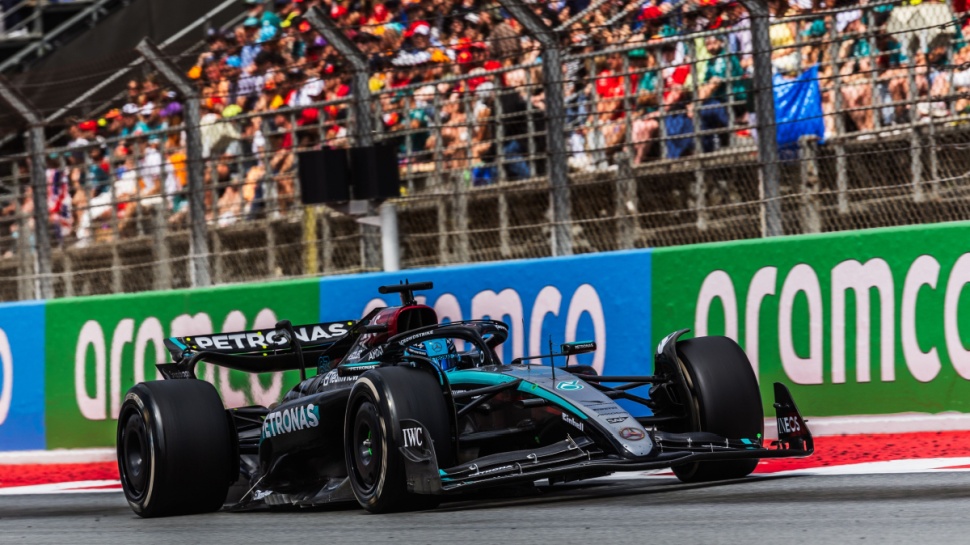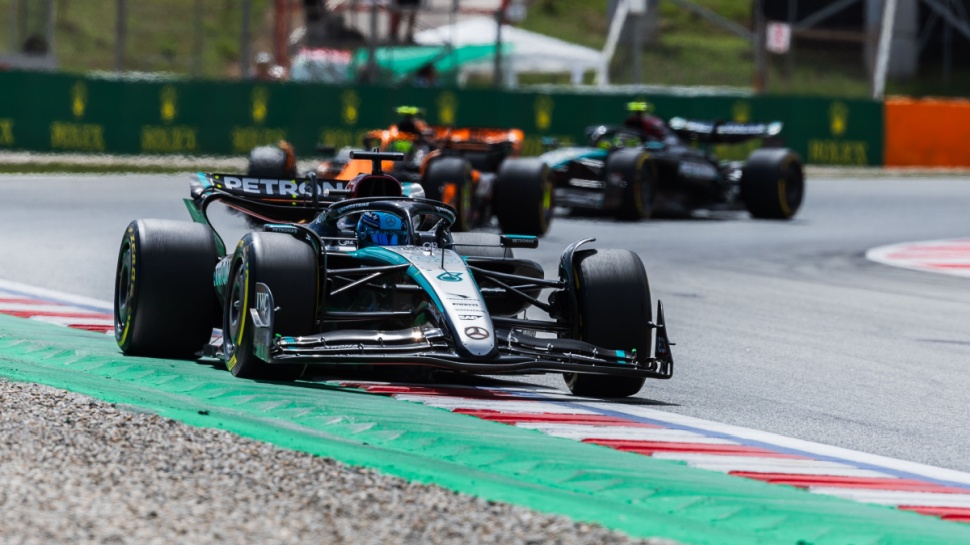
In a sport where tenths of seconds can mean the difference between victory and second place, the need for Formula 1 teams to have effective IT systems that can support the crucial split-second decisions is vital.
As one of the sport's dominant forces over the last few decades, Mercedes F1 has appeared to long recognize the importance of IT and technology, signing up major partners such as AMD and HPE to provide its systems.
At the recent Spanish Grand Prix in Barcelona, TechRadar Pro spoke to Michael Taylor, IT Director at Mercedes-AMG Petronas Formula One Team, to delve deeper into the IT challenges involved in running a top team, and how the future could (perhaps unsurprisingly) be dominated by AI tools.
AI norm
"We're a learning-based organization, and we always give ourselves headroom and space to review our performance, and to understand what learning we can take," Taylor tells us, in what is quite frankly, one of the biggest understatements we've heard this year.
A multiple winner of Drivers and Team Formula 1 World Championships in the 21st Century, Mercedes F1 is no doubt one of the sport's leaders when it comes to technological progress.
The next era of technology is set to be dominated by AI, and Formula 1 will not escape the rise of this new dawn, with Taylor noting it is already firmly entrenched within the team.
"We’re probably in the same situation as many organizations where generative AI has landed - it’s almost the norm now," he says, highlighting the benefits of time-saving and efficiency improvements brought on by generative AI tools.
“The ability to generate, or at least start things from nothing, effectively saves people time," he adds, naming code generation through Copilot, voice to text tools and digital assistants as particularly helpful.
“In time, I imagine we’ll be able to use generative AI primarily, really to give us a greater understanding of our data points and activities."
However, Taylor adds that Formula 1 as a sport is sometimes not an exactly perfect fit for some generative AI tools, noting, “the challenge with (gen AI), compared to the world we are fighting in, is that our challenge is deterministic."
"We want to determine what the optimal setup and configuration of the car is at this point in time…and Gen AI doesn’t lend itself perfectly to that."
So with generative AI such a hot topic, and Formula 1 a sport dominated by knowledge, Taylor says juggling these challenges with the desire to try new tools, all under the umbrella of controls needed when running IT for a huge organization can be a challenge.
"We have quite a curious workforce, and very inquisitive as well," he laughs, "and we’re quite fortunate in many ways as a lot of what we do is fail-fast and learn quickly - which lends itself nicely to people just embracing and picking up on new things relatively quickly and using it in the context they need to operate."

As always with Formula 1, money talks - especially in an era of cost caps where even spending on IT software is limited.
"It certainly adds a complexity of challenge, as ultimately our organization is all focused around adding performance to the car," Taylor notes, "and when you’re competing for the same pot of money, for half a million pounds worth of storage investment versus a new front wing or some aerodynamic improvements, you have to make sure the business case really makes sense!”
This has led to increased backing for open source free-to-use software, as Taylor says, "it's playing a much greater role now in enterprise technology than it ever has done before, and I think that trend will continue.
"Sometimes there is a little bit of a challenge around which horse do you back, because that community evolves and changes very quickly, and our task is to maintain a watching brief and make sure we're backing the right horse."
So how do you sell IT upgrades to a Formula 1 boss? Taylor replies with an answer that will probably be familiar to admins everywhere - it is all about due diligence, showing the benefits, and quantifying them where possible.
“Formula 1 is a compromise, and always has been," he says, "if we had more time, if we had more money, more resources, we could make the car go fast - it’s as simple as that."
“If we were to be investing heavily in AI, for example, the compromise has to be made somewhere else in the business - so we just need to make sure all of the numbers add up and the benefits are real!"
An AI future for F1?
Looking forward, Taylor highlights the huge changes coming to Formula 1 in 2026, where sweeping new regulations will significantly alter how the cars look and are built as part of an effort to encourage closer racing.
“2026 offers a team the chance to align people, process and technology effectively around the regulations, and maybe take a bit more of a leap than a step,” he says, highlighting that the 2025 championship could be the closest for years, as the convergence of performance typically seen at the end of a regulation cycle becomes real.
“In terms of big tech innovation - let’s be honest, AI is going to play a part - where in the future it's unclear at this stage, but all of the teams are finding ways now and starting to embrace it and are creating those AI capabilities - and will continue to do so.”
“Tech will play a key role, as it does with everything," he concludes, "obviously we can’t operate without it, it’s a fundamental part of what we do, and use on a day-to-day basis and will continue to be so."
- These are the best free office software choices we've found







